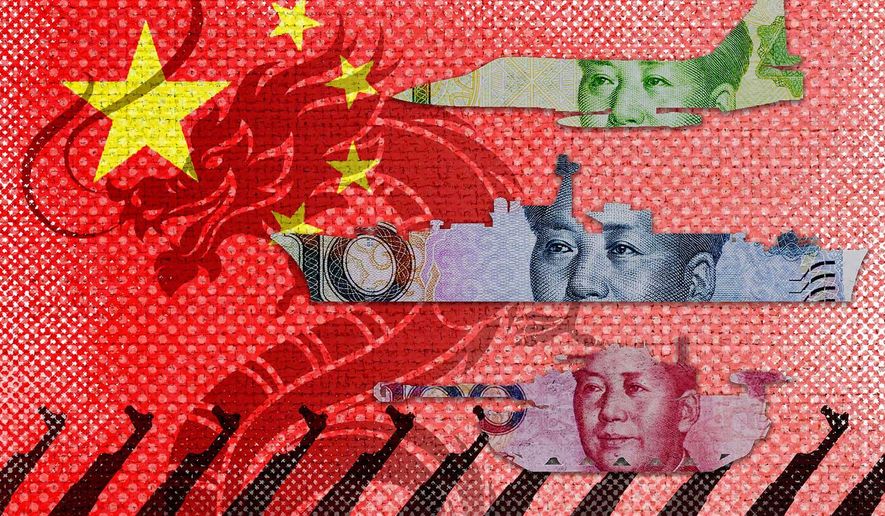OPINION:
Ukrainian forces encounter Chinese-made weapons or Chinese components in Russian-made systems on the battlefields of their country.
Vladimir Putin’s autocratic regime is not the only recipient of Beijing’s military largesse. While the U.S. and its allies look the other way, China has been buying sanctioned Iranian and Russian oil, and selling Iran weapons, weapons components and military technology.
Iran claims to have anti-ship ballistic missiles, a technology first developed by China. Iran’s anti-ship cruise missiles are either Chinese-manufactured or licensed developments of them. Those weapons have turned up in the hands of Syria, Hezbollah and Yemen’s al-Houthi, with the latter two employing them against Israeli and America’s Arab allies’ ships.
This is at a time when America’s and its allies’ defense industries are struggling to supply Ukraine, and the U.S. is straining to supply Taiwan and its other allies with the weapons and supplies to face a growing Chinese threat. Where America was once the arsenal of democracy, China has risen to become the arsenal of autocracy.
Historians will look back on the 20th century’s final decade and the first of the 21st century as a period of unprecedented economic growth and technological advancement by China.
Progressive Western politicians, business leaders and some media commentators have extolled the Chinese Communist Party for lifting so many Chinese citizens out of poverty. Those same admirers typically ignore the reported $2 trillion of foreign investment in China that built the factors and services behind that achievement.
Nor do they credit the Western political elites who opened their nation’s markets to Chinese-produced goods, even those manufactured by slave labor. It was that combination of Western investment, intended to escape growing wages in their countries, and the opening of their markets to the now-cheap imports that diminished the West’s industrial base. The United States even outsourced the manufacture of its advanced information technology systems.
The results of that 30-year process have come home to roost. China’s shipbuilding industry is nearly 200 times that of the United States. China produces more computers, computer components, medical equipment, pharmaceutical products and steel than the United States. Most of America’s consumer goods are imported, and those industries are among the easiest to convert to defense purposes in a conflict.
Modern military equipment requires high-technology components that are themselves reliant on rare earth elements and computer chips. China produces over 80% of the world’s supply of the former and is America’s leading supplier of those materials. The United States also imports most of its computer chips, even though the most advanced chips were developed in the United States.
The United States is facing one of the greatest challenges in its existence. Aggressors and terrorists are on the march in Europe and the Middle East, while China is bullying Japan and the Philippines, America’s allies in the Western Pacific.
Yet our business and political elites seek dialogue with China for dialogue’s sake or fight over titles in Congress while American industries languish and lawmakers’ attention is divided. It is not press conferences and speeches that deter aggression but strength and resolute action. Neither of the latter has any real credibility if the nation’s economy cannot produce what the nation’s and its allies’ defenses need.
The West enabled China to become the arsenal of autocracy. America must restore its capacity to become democracy’s arsenal. World peace demands it.
• Carl O. Schuster is a retired Navy captain and a 25-year veteran who now teaches as an adjunct faculty member of Hawaii Pacific University’s Diplomacy and Military Studies program.




Please read our comment policy before commenting.